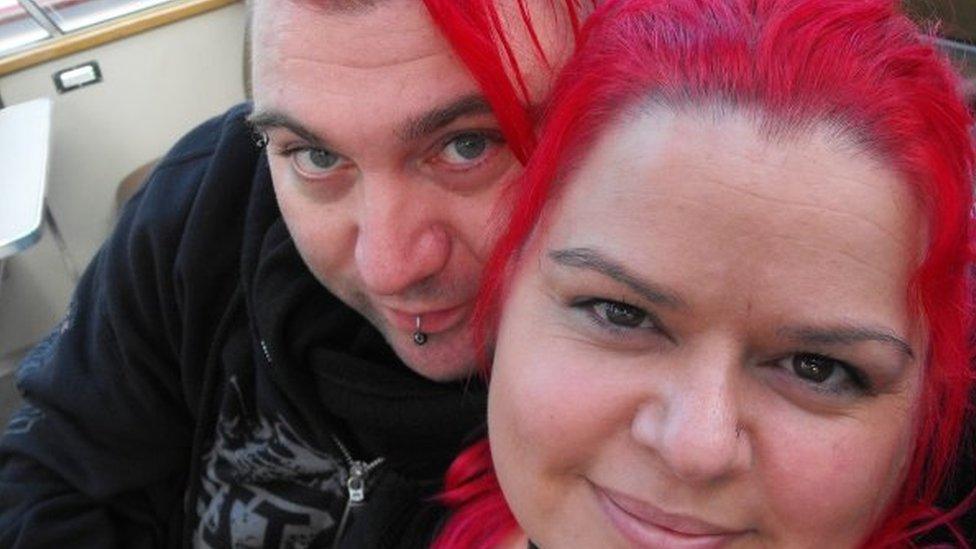Smart motorway deaths: Jason Mercer's widow wants system stopped
- Published
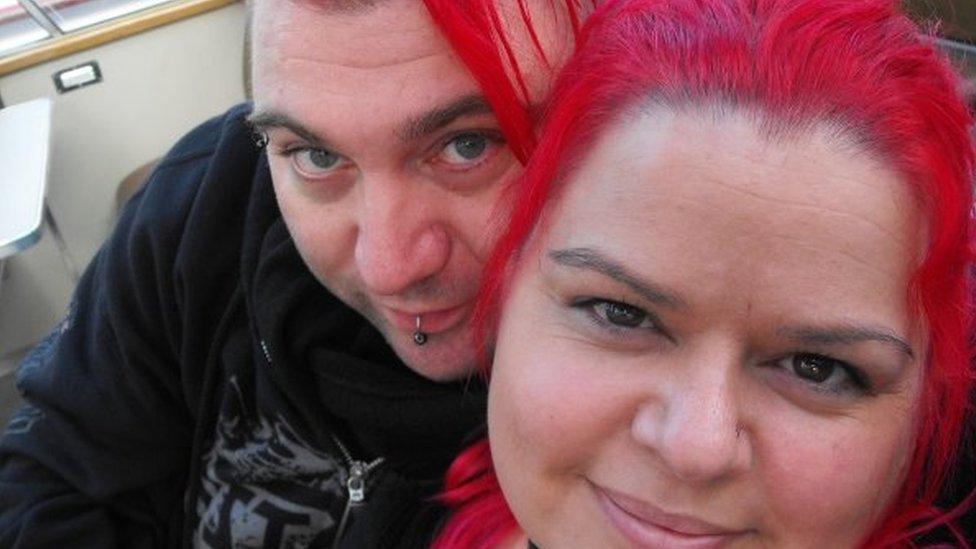
Claire Mercer said she plans to sue Highways England for corporate manslaughter over her husband's death
The widow of a man killed on a "smart motorway" plans to sue Highways England for corporate manslaughter.
Jason Mercer, 44, died on 7 June on the M1 near Sheffield, where the hard shoulder is now an active lane.
He was involved in a minor collision but when he and the other driver got out to exchange details they were hit by a lorry. Both died at the scene.
His widow, Claire Mercer, said Highways England must reconsider using hard shoulders as live lanes.
The other driver was 22-year-old Alexandru Murgeanu from Mansfield.
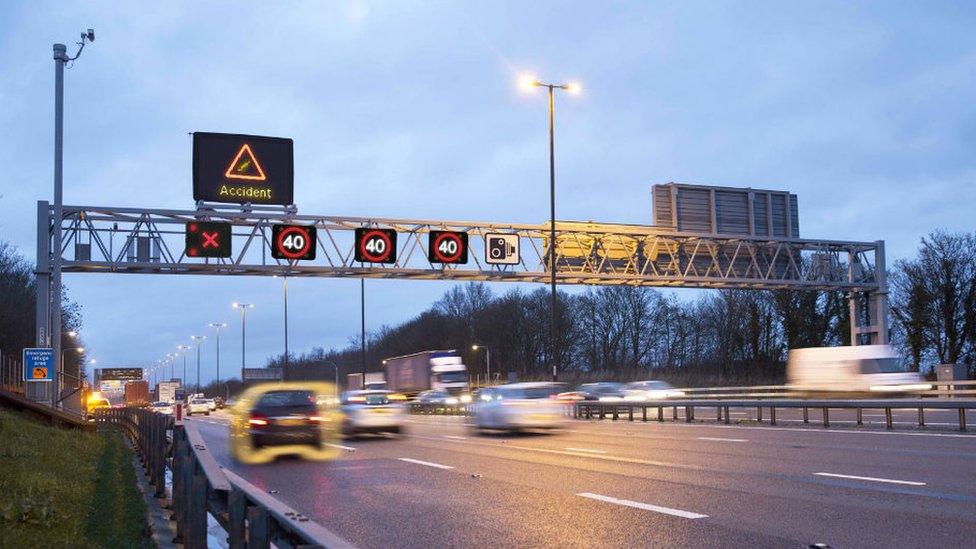
Smart motorways are controlled by computers which constantly monitor the road and can change the speed limit on their own
Ms Mercer, from Rotherham, said she "fell to the floor" when a police officer told her her husband was dead.
Two months later she is calling on Highways England to outlaw all-lane running and bring back hard shoulders.
"Highways England failed in their duty of care to my husband and several other people and I'm encouraging others to take the same path as me," she said.
"I want the whole [smart motorway] system stopping with immediate effect while independent bodies analyse the facts."
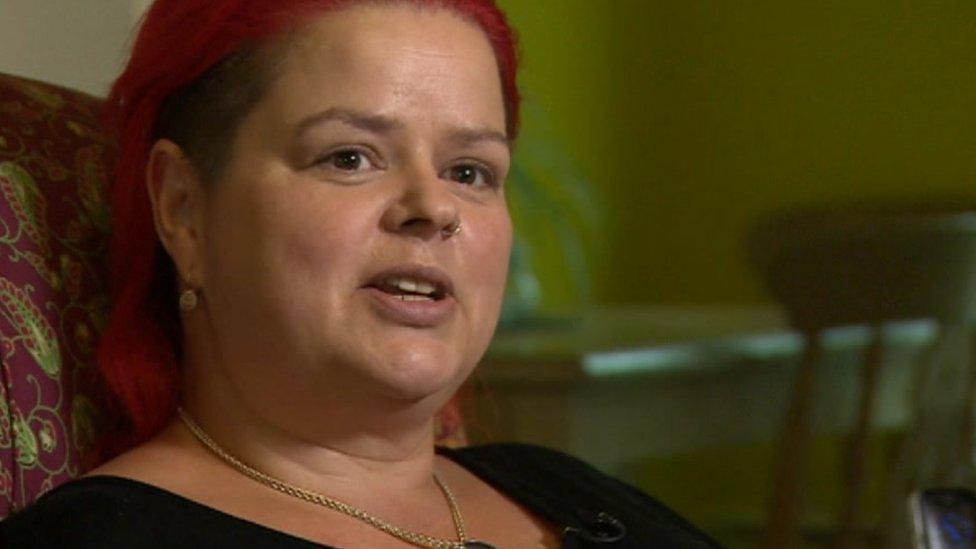
Ms Mercer said the system of replacing motorway hard shoulders with live traffic lanes should stop while independent bodies "analyse the facts"

Smart motorways
Jason Mercer and three others have died in the past year between junction 31 and 35 of the M1 where there is no hard shoulder.
Sixteen miles of the M1 in South Yorkshire, between Meadowhall and Woodall, have had the hard shoulder replaced every mile or so by a refuge area.
Highways England said overhead gantries advise drivers to move away from a blocked lane.
But vehicles can become stranded in live running lanes if they are not near a refuge area when they have to stop.
There are two types of Smart motorway in the UK. The first is where the hard shoulder is opened to traffic when it's really busy, often cutting speed limits at the same time.
They've been around since 2006 and statistics show they ease congestion and cut accidents, because it's easier to control the traffic. Sensors in the road detect how busy the motorway is and overhead gantries with matrix signs attached declare when the hard shoulder is open.
"All-lane running" is different. It's where the hard shoulder is open all the time, effectively converting a three lane motorway into a four lane one.
For the government it's a cheaper way of increasing road capacity without completely rebuilding a motorway, which would involve widening bridges and junctions.
But a report from the Transport Select Committee in 2016 called for a halt to "all-lane running" schemes, saying there are major safety concerns.
The Department for Transport said "all-lane running" was designed to be as safe as ordinary motorways.
By Spencer Stokes, BBC Yorkshire Business Correspondent

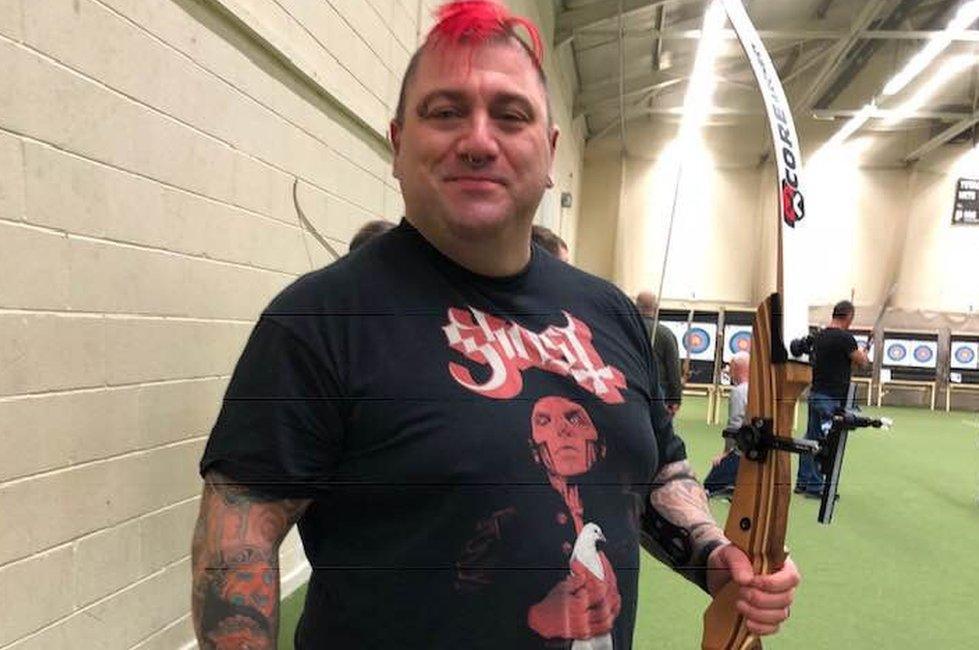
Claire Mercer said she "fell to the floor" when she was told her husband Jason had died
Highways England chief highway engineer Mike Wilson said safety was "top priority".
He said the UK's motorways are among the very safest roads in the world, and the latest generation of smart motorways have reduced casualty rates by over 25%.
"We will continue to evaluate all lane running schemes and work closely with all the emergency services to ensure safety is maintained," Highways England said.
"Evidence shows where all-lane running has been introduced, there have been fewer collisions and congestion has reduced despite an increased number of vehicles using them."
A 39-year-old man from Hull was arrested over the collision and has been released on bail pending further enquiries.

Follow BBC Yorkshire on Facebook, external, Twitter, external and Instagram, external. Send your story ideas to yorkslincs.news@bbc.co.uk, external.
- Published10 June 2019

- Published30 June 2019

- Published7 June 2019
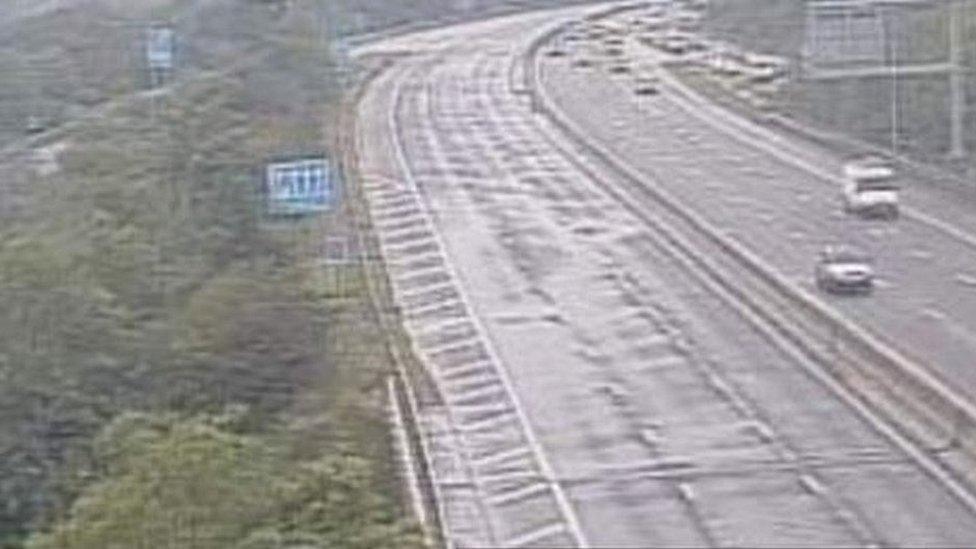
- Published30 June 2016
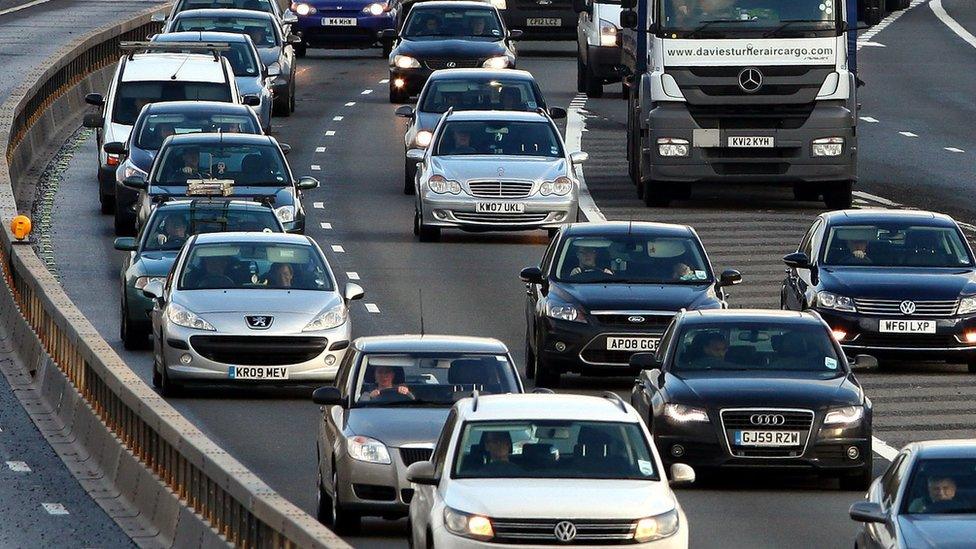
- Published3 September 2019
